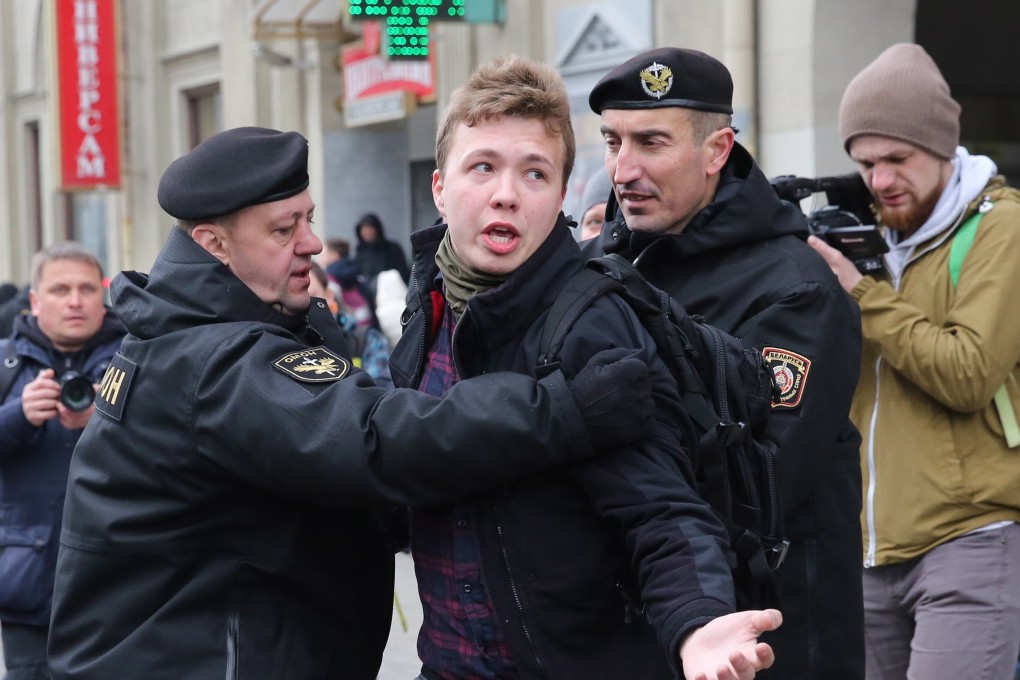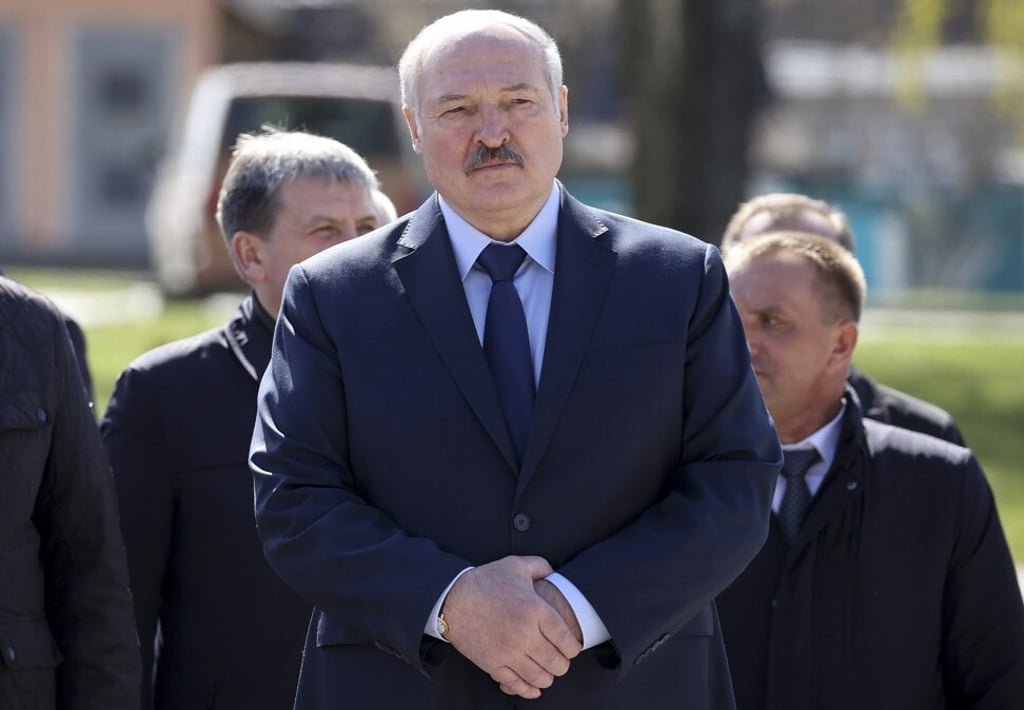Belarus accused of ‘hijacking’ Ryanair flight to arrest dissident journalist Roman Protasevich
- The activist was detained in Minsk after his Athens-to-Vilnius flight was diverted, prompting international condemnation
- Belarusian authorities have intensified their crackdown on the opposition after last year’s disputed election provoked protests

Belarus on Sunday forced a Ryanair flight carrying a wanted opposition activist to land in Lithuania, provoking a furious outcry from world leaders who described it as a “hijacking” and an “act of state terrorism”.
Belarusian state television reported that Roman Protasevich, a 26-year-old dissident journalist exiled in Poland, had been detained in the capital Minsk after flight FR4978 was diverted from its Athens-to-Vilnius route, ostensibly over a security scare.
After finally landing in Vilnius several hours after the scheduled time of arrival – without Protasevich – some passengers described seeing the activist looking nervous as the flight was diverted to Belarus.
“He just turned to people and said he was facing the death penalty,” said Monika Simkiene, a 40-year-old Lithuanian.
Edvinas Dimsa, 37, said: “He was not screaming, but it was clear that he was very much afraid. It looked like if the window had been open, he would have jumped out of it.”
The European Union is set to discuss toughening its existing sanctions against Belarus – imposed over the crackdown by the regime of President Alexander Lukashenko on opposition protesters – at a pre-planned summit on Monday.
